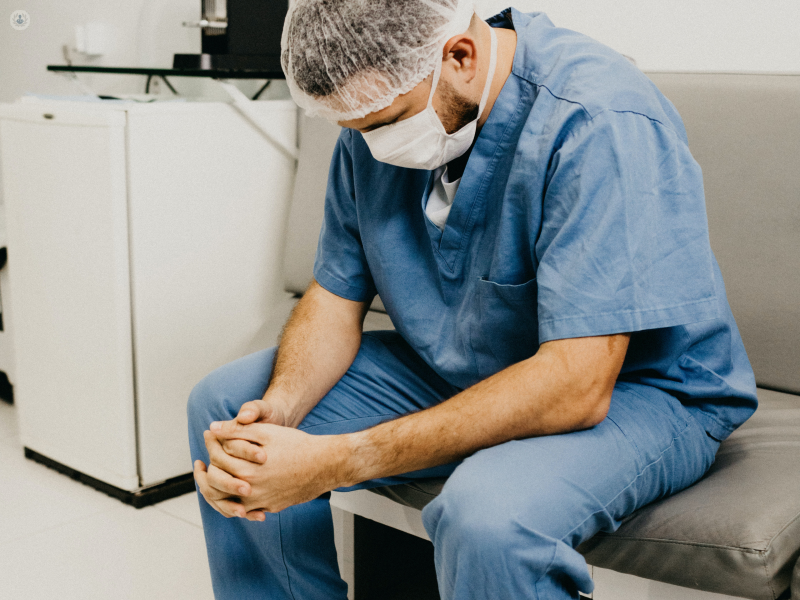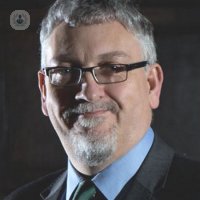COVID-19 healthcare professionals frontline risk PTSD
Autore:Throughout the coronavirus pandemic, we’ve understood how doctors, nurses and other healthcare professionals are enduring long working hours while they work tirelessly to treat the drastic rise in infected patients, witnessing large scale deaths across hospitals and nursing homes and are no doubt having to make challenging ethical decisions every day.
PTSD and generalised anxiety were already a hazard in ICU and ED staff in normal circumstances, but now health experts are acknowledging the potential for these mental health conditions to rise dramatically throughout the epidemic and, possibly, for years to follow.
Professor Ben Green is a psychiatrist from Liverpool with over 35 years of treating patients with various mental health conditions. In this article, he looks back at tragic events through history to help us predict how healthcare professionals in the ‘eye of the storm’ might become more susceptible to burnout, acute stress disorder, PTSD and other mental health conditions.

What type of events or jobs typically cause PTSD?
Psychiatry uses several classification systems. The DSM 5 system, from 2013, has various criteria to standardise diagnoses and deals with the kinds of stressors that can result in post-traumatic stress disorder (PTSD). This includes being exposed to actual or threatened death, serious injury or sexual violence which the patient may experience themselves or witness it happen to others. In addition, having repeated exposure to aversive details of a traumatic event - such as first responders collecting human remains or police officers repeatedly exposed to details of child abuse - may result in PTSD.
Occupations that might involve experiencing or witnessing such trauma include:
- paramedics
- police officers
- military personnel
- firefighters
- doctors
- nurses
- and other frontline operatives that are often forgotten about e.g. mortuary assistants, hospital cleaners and porters.
How can PTSD develop?
Traumatic events may make people feel their physical or personal integrity is seriously at risk; e.g. paramedics involved in accidents while blue-light driving, emergency staff who are assaulted, doctors who are stalked, or ward cleaners who are the victim of needlestick injuries through the negligence of other staff.
Much depends on the individual, their vulnerability and how they perceive the trauma. Do they feel unable to escape from a situation where they are repeatedly under threat? Do they feel they have any personal control over their fate? The individual's perception in these situations is paramount and it's often forgotten about by third parties.
For instance, car air-bag systems are designed to reduce personal risk, but I have lost count of individuals who perceived the safety system in their car as an imminent threat - the airbag saving their life, and in doing so, enveloping their face has been interpreted as an experience of blindness or death.
Often, the survivor of an incident can be on their way to successfully put the experience behind them, until a thoughtless comment by a third party at the scene e.g. ‘if your head had been just one inch to the left, you would have been dead’ triggers an avalanche of unhelpful intrusive thoughts that form the basis for later PTSD.
How might healthcare professionals be mentally affected by the current COVID-19 situation?
It is important to note that when traumatic events occur most people exposed to them do not develop a psychiatric illness. Only about 5% of people who witnessed the 9/11 terrorist event in 2001 were thought to have developed PTSD. However, the percentage risk went up with geographical proximity to the World Trade Center, meaning that those within, or closest to, the eye of the storm are most at risk. It is probable that ICU and ED staff will be most at risk of acute stress disorder, PTSD, anxiety, depression and burnout in the COVID -19 pandemic.
Doctors and nurses may develop sleep problems, anxiety, panic, and symptoms of PTSD such as nightmares or intrusive thoughts, and increased anxiety at reminder cues may lead to avoidance behaviour (another feature of PTSD), reliance on tobacco, alcohol or other drug-use, impaired concentration, detachment and reduced empathy, lowered mood, and suicidal ideation.
Symptom severity and number may result in case level psychiatric disorder with formal diagnoses such as PTSD, adjustment disorder, panic disorder, and depressive disorder.
Is PTSD likely to affect many healthcare professionals at this time?
The majority of healthcare professionals will not go on to develop psychiatric disorders, but even so, may have some increased symptoms such as poor sleep and generalised anxiety. It may be helpful to look at the epidemiology of past events to gauge how health professionals may respond at this time.
Studies on ICU staff often find that there are higher prevalences of PSTD compared to other hospital areas in more normal times. In 2006, Mealer et al found that 24% of the ICU nurses had symptoms of PTSD related to their work, compared with 14% of the general nurses.
Early studies of 'disaster workers' (medical personnel, police, firefighters, search and rescue) in the first 2-3 weeks after 9/11 found that nearly 15% of disaster workers developed acute stress disorder and 26% had probable depression. Increased substance use was widespread.
Bromet et al studied over 3,000 people who had been responders to the 9/11 event and found long-term effects were documented in responders many years later. More than ten years after the 9/11 terrorist event, Bromet et al (2015) found that almost 10% of responders still had PTSD, 8% had recovered from PTSD and 6 % had partial PTSD. In addition, avoidance behaviour, which is a symptom of PTSD, may become so severe it signals the end of a clinical career.
In his upcoming article, Professor Ben Green offers some useful tips and interventions for both healthcare professionals and the managers of healthcare professionals to help mitigate the risk of mental health conditions developing.
If you are or believe you are suffering from any of the conditions mentioned in this article, you can make either a face-to-face or e-Consultation with Professor Ben Green by booking through his Top Doctors profile. Click here to look at his schedule and check his availability.


